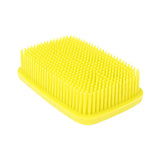Top Reasons To Choose The Robotic Wet Floor Cleaner
The general trademarks for robotic vacuum cleaners are Robovac and Roomba. They are robotic vacuum cleaners that operate on their own and have a vacuum floor cleaning system, sensors, robotic drives, programmable controllers, and cleaning cycles. Recent robot vacuum cleaner models, which are typically smaller and lighter than standard upright vacuums, integrate artificial intelligence and deep learning for better mapping, item identification, and event-based cleaning. In this blog, people can heighten or augment their understanding of the mind-blowing robotic wet floor cleaner.

Robotic Wet Floor Cleaner
Commercial floor cleaning robots enable your cleaning personnel to focus on activities that cannot be automated while increasing the effectiveness and productivity of your staff so that the cleaning crew would have more time to concentrate on chores that can only be completed by humans. Removing tedious and repetitive jobs reduces the effect of worker shortages and improves turnover and satisfaction among cleaning staff. You must begin gathering information about your cleaning procedures in order to optimize your schedule and cleaning effectiveness. By using less power and cleaning supplies, these procedures are also more environmentally friendly. Everyone will consider this intriguing aspect before purchasing a robot floor cleaner. While both vacuum cleaners may require the operator to regularly clean the roller brushes, the robotic cleaners are more cost-effective. The gadgets' built-in sensors enable them to go to the charging station and then continue with the cleaning activities, saving you the expense of replacing the complete pack.
